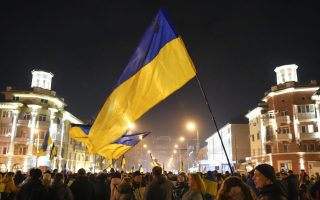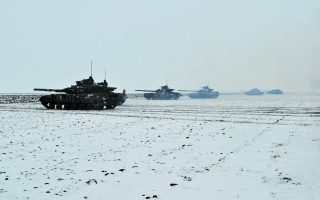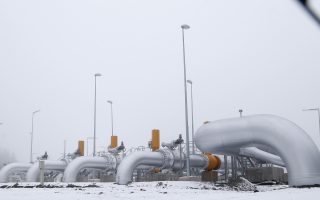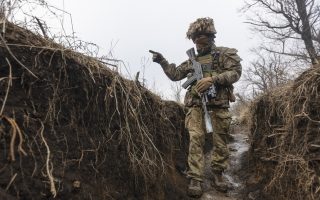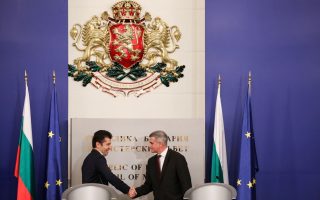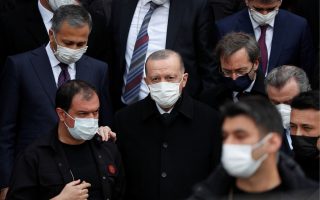A new age of German foreign policy
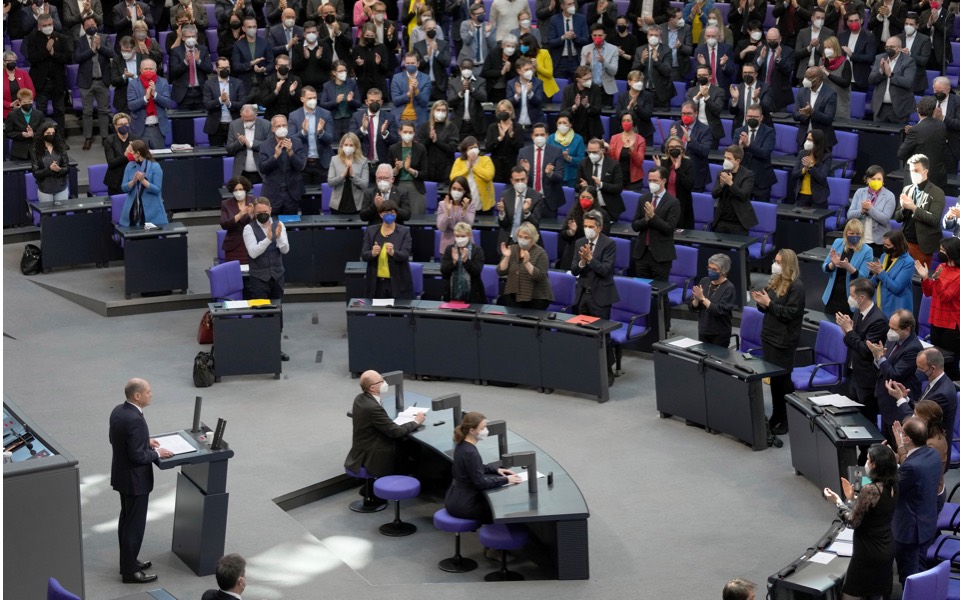
On February 27, 2022 the new German government decided on a historical shift of its foreign policy and security doctrine, with consequences not only for Germany but for Europe and the Western alliance at large. The spectacular turnaround is a direct result of Russia’s invasion of Ukraine and was announced in an address by Chancellor Olaf Scholz to the Bundestag. This decision includes the following key actions:
* To supply Ukraine with arms;
* To bolster the German Army (Bundeswehr) through a trust fund of 100 billion euros, to be enshrined in the constitution;
* To (finally) live up to the commitment to spend 2 percent of GDP on defense;
* To agree to the most comprehensive package of sanctions in the history of the European Union, including banning major Russian banks from the SWIFT payments system;
* And to dramatically reduce Germany’s dependency on Russian gas supplies by diversifying supply options, building liquefied natural gas (LNG) terminals and accelerating the supply of renewable energy.
This shift in policy is courageous and has been met with a big sigh of relief, both in Germany and among our allies. That is true also for myself. I can hardly remember a parliamentary debate of such significance. What strikes me most is the genuine overall soul-searching of the German political class for having too long been too tolerant with Putin’s Russia and misreading its true intentions. Furthermore, this bold and spectacular shift in policy appears very “un-German,” as we are known for slow and cautious decision-making, more in a piecemeal manner. While the paradigm shift has been overwhelmingly welcomed by German media and the public, critics emphasize nonetheless that it took a war of aggression and almost unanimous pressure from almost all our allies to trigger this turnaround. And that it was only under the impression of isolation that Germany found the courage to come around “to the right side of history.”
Was everything wrong?
This may be true, but such a verdict should be issued only after taking into account the roots of what has often – wrongly – been called appeasement, complacency or economic egotism. As to the restrictive policy of proliferation of arms, let us not forget the burden of the past. Germany has tried to address its traumatic history which resulted in World War II, when 60 million people in Europe were killed, and the Shoah, the mass murder of the European Jews. Nazi Germany killed more than 25 million citizens alone in the former Soviet Union. The number of victims from Ukraine is estimated at around 8 million. Even after 77 years, the horror of what was done by Nazi Germany to all our European neighbors still weighs heavily on the conscience of my country. It still matters and is, contrary to some commentary abroad, not a comfortable pretext to stay away. But of course there is the other narrative, too: Shouldn’t Germany feel a special responsibility to help protect and support Ukraine, now again the victim of a war of aggression, in view of its suffering inflicted by Hitler’s war? And, more widely: Isn’t military support to Ukraine also justified in view of the concerns of our eastern EU partners, such as the Baltic states, who were traumatized by Nazi Germany’s atrocities but also by those of the decades-long Soviet dictatorship? A very difficult moral dilemma indeed. But I would argue that Germany’s past hesitation to deliver arms to Ukraine deserves respect.
Yes, the new doctrine is also a significant and necessary departure from what was so far a widely accepted policy vis-a-vis Russia. Germany saw itself in a particular role with a responsibility to build bridges of engagement, even when Russia became increasingly aggressive. Keep also in mind the gratitude felt by many Germans for Gorbachev’s role in the unification of Germany in 1990. Its leadership in handling Russia was – for a long time – generally accepted in the EU, although it was always seen with some suspicion by our EU partners in the East. The Minsk agreement, which has now been torn up by Putin, was the right thing to do to de-escalate conflict in Donbas. To maintain communication with Russia on important regional conflicts, like Syria or Iran, seemed a necessary objective. To many, Angela Merkel looked like the only EU leader whom Putin seemed willing to take seriously.
A crisis of credibility
But the development of Putin’s Russia into an ever more repressive and excessively brutal power with no apparent limits or taboos made it more and more difficult to defend this agenda of engagement. It also cast dark clouds over Germany’s belief in “Wandel durch Handel” (i.e. the policy of change through closer trade ties), which seemed to be have been successful for many years. It further unmasked an unacceptable degree of dependency on Russian natural gas. During the electoral campaign in autumn 2021, it was in particular the Green Party which had been arguing that Germany’s foreign policy should be refocused. Annalena Baerbock (now foreign minister) and Robert Habeck (now minister of economy and climate policy) made a strong plea for a more value-based policy, for example by arguing for the termination of Nord Stream 2, while the contenders from both the Social Democratic Party (SPD) and the Christian Democratic Union (CDU) were rather silent on foreign policy issues.
With Putin’s military buildup at the borders of Ukraine, the domestic discussion on Germany’s stance on Putin’s Russia became increasingly tense. There had always been some understanding – in particular in parts of the SPD – regarding Moscow’s frustration on the issue of NATO enlargement in view of reported oral assurances by Western leaders in the early 1990s as well as criticism of the lack of interest in offering Russia its appropriate place in an overall European security structure. All of this may be valid but it is a fact that Russia signed the Charter of Paris in 1990, the Budapest Memorandum in 1994 (through which Ukraine transferred its nuclear arsenal to Russia in exchange for a guarantee of territorial integrity), and the NATO-Russia Founding Act of 1997 (in which Russia committed to abstain from threats or acts of violence against the territorial integrity and self-determination of NATO members and other states, including their right to seek the means for their security). Incidentally, it was Germany which came up with a number of initiatives to accommodate Russian concerns. Those were never taken seriously by Moscow. Patience with Russia was already running thin after the annexation of Crimea in 2014, the assassination of Russian dissidents in the streets of Berlin and the poisoning of Alexei Navalny. In view of these developments, the widely respected scholar and historian Karl Schloegel has called the appeals for continued understanding of Russia’s behavior “Putin-Kitsch.” And with Putin’s invasion of Ukraine, many of those who once argued for a better understanding of Russia’s concerns have now clearly expressed their condemnation and disillusionment. What is Russia’s justification for its war of aggression? A modified “Brezhnev doctrine,” with a time lag for repressive and violent response of 25 years (after the NATO-Russia Founding Act), and at a time when NATO membership of Ukraine and Georgia is not even on the table? To bring, after 78 years, Yalta back to Europe and forget about Helsinki, as Timothy Garton Ash put it so eloquently? The result of Putin’s invasion is today an overwhelming support, by the main parties, by German business and by media and civil society, of the new course taken by the government of Olaf Scholz, with the exception of Alternative for Germany (AfD). Even the Left Party (Die Linke) clearly condemns Russia’s aggression against Ukraine now, although it will not agree to the empowerment of the Bundeswehr.
What does it mean for Europe?
Germany’s policy shift will have important implications and consequences:
* First, the fundamental shift of Germany’s defense policy culture toward accepting robust capabilities will strengthen its own as well as EU diplomacy. The importance of dialogue and diplomacy will not be diminished. Germany will of course always live up to the principle of the primacy of diplomacy. But it has accepted that diplomacy and dialogue can be more effective if underpinned by a credible toolbox including deterrence and military weaponry.
* Secondly, the intention to increase defense spending will contribute to NATO’s credibility to defend the territory of the Alliance. It is no secret that the German military, the Bundeswehr, suffers from substantial weaknesses, putting into question its ability to perform its role in the defense of NATO territory. It will take some time for this recovery to bear fruit, but it is all the more urgent in view of Russia’s increasing pressure on the nations on the eastern flank of NATO. It will also be a substantial contribution to the EU’s own ambitions on a way to its army. I hope that the substantial resources which will now be released will take into account the need for pooling and sharing – to engage actively in joint projects with a shared understanding of defense objectives.
* Third, confronting Russia rather than engaging it was long overdue. It is a new position for Germany but also an important contextual change for Russia’s relationship to Europe. From Putin’s point of view, he has lost a player who had a record of taming emotions in the EU and of maintaining bridges of communication even at times of high tensions. Nord Stream 2 is dead (in my view for good). Berlin is helping to arm a country at war with Russia and has subscribed to banning Russia from SWIFT, which also means accepting adverse risks and consequences for energy security in Germany itself. The bold move of the Scholz government may also be good news for the EU as it removes barriers of suspicion vis-a-vis Berlin, especially among eastern member-states. It is definitely a development which will contribute to the cohesion of Europe.
* Fourth, and maybe most important, it should be noted what lies behind Berlin’s decision: defending freedom, the right of countries to exercise self-determination and choose a path of democracy, and, above all, upholding the principle of territorial integrity and sovereignty in Europe. These are the values that Ukraine is defending – for all of us. Germany is ready to leave its comfort zone and to put up a fight for these values. It is a strong message addressed to Moscow but also to anybody pursuing a revisionist agenda trying to curtail sovereignty and territorial integrity. In this sense it is – by the way – also a positive message for Greece.
Peter Schoof was Germany’s ambassador to Greece from 2014 to 2017. The views in this article reflect his personal opinions.
